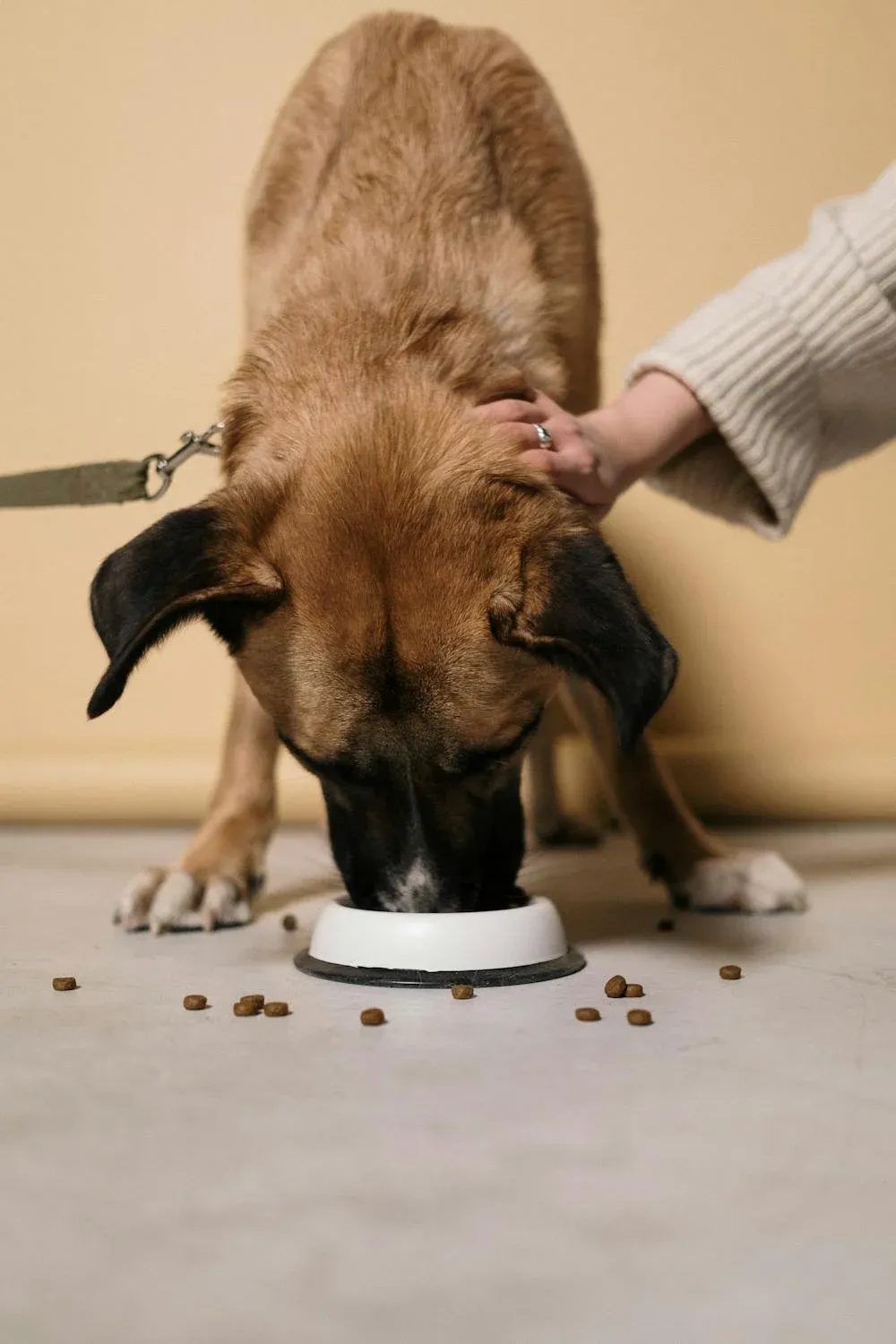Labrador Retrievers are among the most beloved dog breeds known for their friendly temperament, intelligence, loyalty, and easy to adapt nature. Hence, a popular choice for first-time dog parents in India.
Understanding the temperament of any dog is crucial to ensure their behavior and energy levels are a good fit for a household.
Here are details about the behavior and temperament of these dogs so you can give them the finest care.
Labrador Retriever Vitals & Must-Know Facts
A few important details you have to keep in mind before bringing home a Labrador.
History of the Labrador Retriever Dog Breed


Labrador Retrievers originally from Newfoundland were first developed in the 1800s. Fishers used them as water dogs to retrieve lost lines and nets. Coastal people loved them because of their friendly nature, intelligence, and swimming abilities. They are perfect as working dogs, trusted hunting partners, and affectionate family pets.
Labrador Retriever’s Temperament & Personality Traits

- Labradors are friendly, social and outgoing. They are compatible with people, children, and other pets and enjoy family activities.
- They are highly intelligent dogs. They like to please and learn new things, which makes their training easy.
- Labradors have high energy levels and enjoy outdoor games and activities.
- They are loyal, gentle and affectionate and make strong connections with their family.
- Labradors adapt well in a family environment or with active individuals.
- They are useful in therapy work and service dogs because of a calm disposition.
Is a Labrador Retriever Suitable for an Indian Household?

Labrador retrievers are social and outgoing. They are suitable for Indian households because of their adaptive nature. Labradors are affectionate to their family. They are gentle with children and patient with family members and also get along well with other dogs and pets.
They can survive in different temperatures in India. Their kind nature makes them excellent companions for large families, nuclear families with kids and couples, as well. They can thrive in Indian homes with proper care, love, and affection.
Labrador Retriever Exercise & Training
Labradors are active dogs. They thrive on frequent exercise and training. They respond strongly to positive reinforcement, making them highly trainable. Positive reinforcement makes training sessions enjoyable and stress-free. However, because of their innate curiosity, memory training is required.
- They pick up simple instructions like "sit," "down," and "come" quickly.
- Basic cues like "spin" and "bark" make their training fun.
- Teaching them tricks like the "high five" stimulates their innate intelligence and strengthens their relationship with their pet parents.
Exercise keeps them physically fit and emotionally balanced. Pet parents need to take care of their activities to keep them healthy and happy. Adults are required to have a daily exercise routine of approximately one hour—activities such as walking, swimming, or games. Labradors are prone to obesity, therefore regulating their exercise levels is good for their overall health.
Labrador Diet & Food Chart

Labradors adore food. Overeating makes them obese and are prone to various health and orthopedic issues. For their healthy and long life, they should have the right amount of nutritious food.
Their inherited trait makes them gain weight quickly. It is important to consider that they get nutritious food without overfeeding. Adult Labradors need two meals a day, but puppies require frequent and smaller meals.
Adult Labradors can be fed meals twice a day, while puppies require frequent and smaller portions of meals. .
Labrador Retriever Puppy:
- 8–12 weeks: 3–4 meals a day, 150 to 200 g daily.
- 3-6 months: 3 meals a day, total 300–400g daily.
Labrador Retriever Adults:
- 1 or 1+ year old
350–450g of food daily, split into two meals based on weight and activity levels.
Check out sploot's fresh dog food for labradors for nutritious feeding options. Our food meets their nutritional needs at every stage.
Labrador Retriever Health Considerations
Common health problems in Labrador:
Hip Dysplasia: This is a common hereditary condition in Labradors where they cannot stand or jump, face problems in moving and arthritis. Regular exercise and optimal weight help to ease this problem.
Obesity: Labradors gain weight easily. Obesity results in joint pain and also creates the risk of diabetes and heart problems.
Joint Problems: Genetic problems or obesity in Labradors cause joint issues. Commonly seen symptoms are stiffness, limping, elbow dysplasia and arthritis. Routine changes and sometimes surgery is required to cure this problem.
Ear Infections: Accumulation of dirt and moisture and cause ear infections. Regular cleaning and drying avoid such infection.
Heart Disease: Heart diseases are common in Labradors. Regular care and routine veterinary checkups help detect early symptoms and start treatment.
Need expert advice on your dog's health? Connect with a vet through our online vet consultation. Get reliable advice right from the comfort of your home!
Also, you can pamper your dog with expert care. Book sploot’s dog grooming services today.
Join the Sploot Community
Be a part of sploot, and connect with 50,000+ pet parents and dog experts who adore pets. Get answers to your questions, explore dog services and learn fresh food options, and tips to become a responsible dog parent.
Take part in Ask Me Anything (AMA) sessions with experienced veterinarians and trainers and Pup Talks. Learn from other members, share your experiences and get involved in exciting sploot-organized events.
Sign up with sploot and connect with other dog parents. Follow us on Instagram, get more information about sploot events, and more.
FAQs on Labrador Retriever Temperament
Is a Labrador a high maintenance dog?
No, Labradors do not need high-maintenance. To keep them healthy, regular exercise, grooming, and training sessions are necessary. They are gentle and ready to please, and easy to manage.
Is a Labrador good with kids?
Yes, Labradors are excellent with kids because of their friendly and patient nature. With early socialization, they make a wonderful family pet.
Can Labradors be left alone?
As Labradors are social dogs, you can leave them alone for short periods. But for a long time, they need some physical activity or mental stimulation.
How big do Labradors Retrievers get?
Labrador Retrievers are medium to large size dogs with an average weight of 25 to 36 kg, and height 22-24.5 inches.
How long do Labrador Retrievers live?
Labrador Retrievers' average life is 10-12 years.









